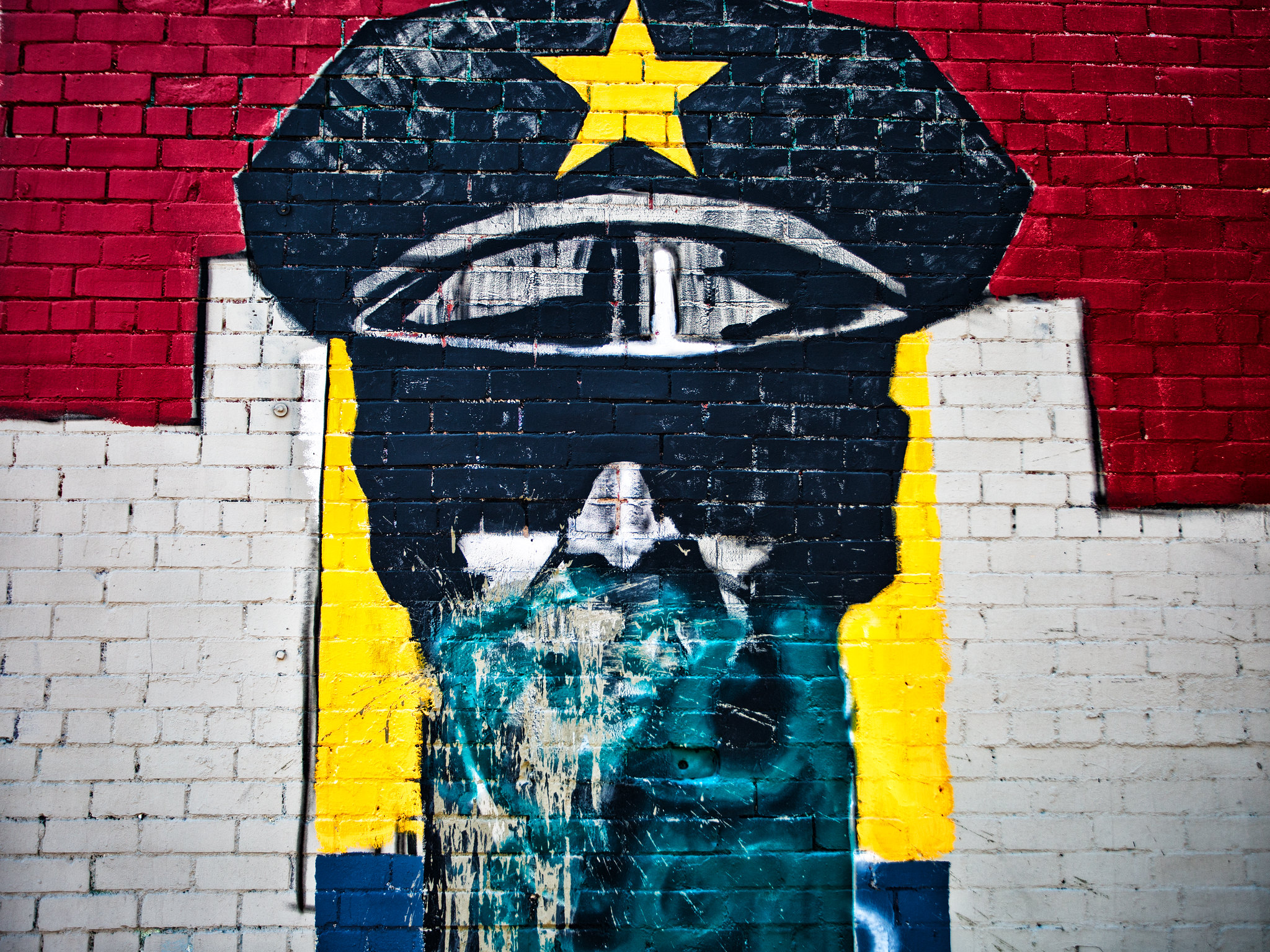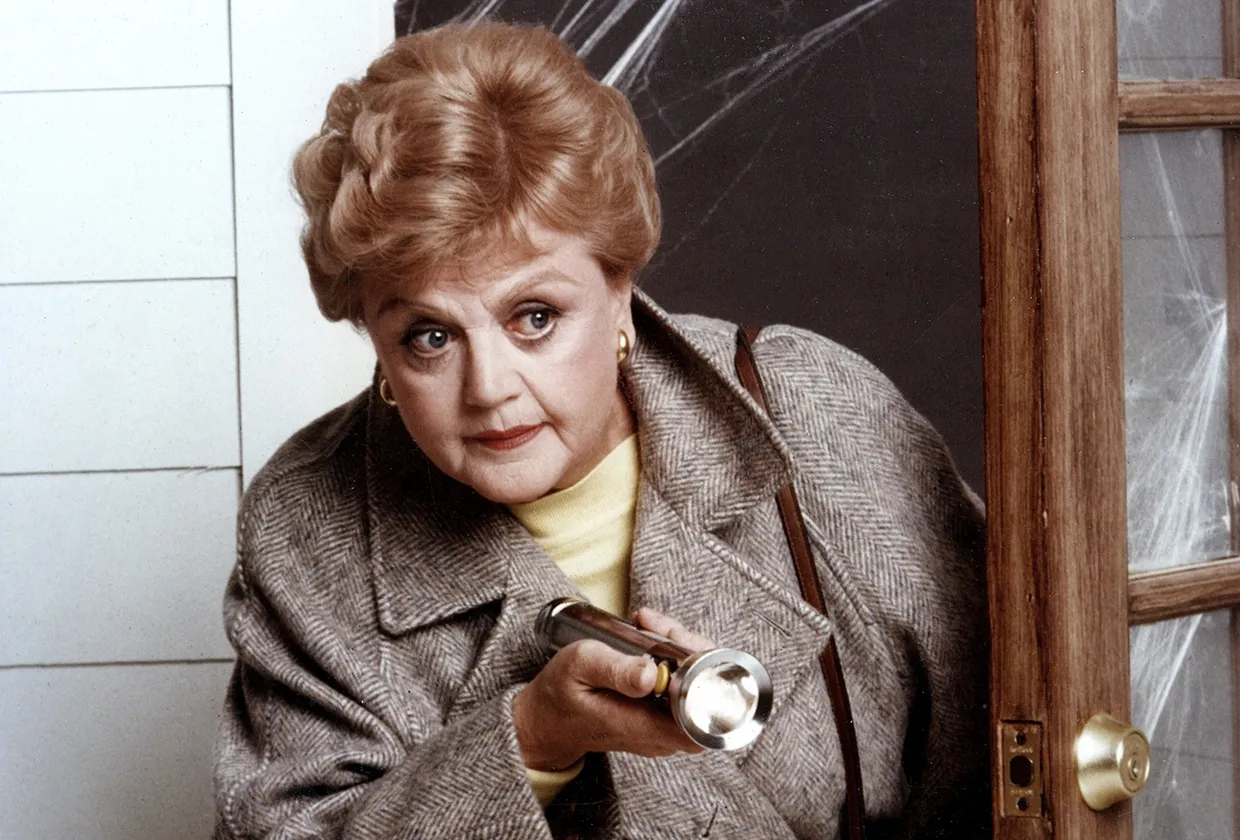essays
Crime Fiction Is Complicit in Police Violence—But It’s Not Too Late to Change
Novels have been selling us the myth that crimes are mysteries and cops are here to protect us

When Derek Chauvin knelt on George Floyd’s neck and murdered him, many white people said they were shocked. Perhaps they are shocked because they are used to seeing a different version of that scene: they are experienced in watching fictional portrayals where white law enforcement uses deadly force, the white officer is sympathetic, and the killing is always justified.
Every genre has its preoccupation, and the central preoccupation of crime fiction is justice. But in this moment of political upheaval, where our notions of justice are subject to intense scrutiny, we must ask what role has crime fiction played in getting us here.
In a traditional mystery, the plot begins with a crime and we follow a character seeking to find out what happened. We are satisfied when we finally find out who did it and the guilty party gets their comeuppance. This effective plot structure has time-tested stakes and conflicts. We can explore political issues that drive or motivate individual acts of violence or law-breaking. Cops, private eyes, FBI agents, amateur detectives, attorneys, forensic scientists and others can all get in on the action.
Crime fiction has also been a site to explore the shadow side of the law: corruption, brutality, and misuse of authority. Many endings are not so neat, with ambiguities and gray-area solutions.
The genre has validated the underlying assumption that police are the good guys, and if they’re not, they should be.
Yet overall, the genre has validated the underlying assumption that police are the good guys, and if they’re not, they should be. There is no widespread critique or questioning of the whole paradigm of police and prisons as a system. And even less envisioning of any alternatives.
The typical perspective of police procedurals has helped create the myth of police as heroes. White male police have dominated decades of crime literature, TV, and film, with Black people and people of color stereotyped as violent criminals. Since the first half of the twentieth-century, our popular culture has shown the world of crime from a white male perspective and has validated white male characters’ right to use violent and deadly force according to their own judgment.
Intentionally or unintentionally, crime fiction has been a propaganda machine of fictional stories to back a central lie of our culture: that police are here to protect and serve everyone. In the current political moment, when this myth has been exposed, TV shows are being cancelled. Unscripted TV shows like the COPS and Live PD are being taken off the air, despite their success, because the producers know they are heavily edited narratives that manipulate viewers.
In a recent New York Times op-ed titled “How White Crime Writers Justified Police Brutality,” author John Fram traces how fictional police shows, from the ‘50s to the present, have had to be produced in partnership with police departments. Show creators were keenly aware that they would need to provide an overall sympathetic portrayal of the police in order to survive. Yet as Black people have been saying for a long time, the good guy vision of police is a cultural myth. And the latest police murders of Black people are not an aberration, they are a natural consequence of the systemic racism embedded in the institution. George Floyd’s death actually means that the system is working as it should.
Intentionally or unintentionally, crime fiction has been a propaganda machine for a central lie of our culture: that police are here to protect and serve everyone.
Recent calls to defund police are asking us to completely rethink public safety. Part of this process must include interrogating how crime fiction has contributed to the idea that we need police to defend our safety in the first place.
One of the biggest myths of crime fiction is that most police officers are fighting dangerous criminals all the time. Journalist Alyssa Rosenberg argues that crime fiction, TV and film routinely over-represent incidents of police shootings. And most officers have maybe one felony arrest per year. They spend the bulk of their time responding to calls that would be better served by a social worker or counselor.
But beyond selling the myth of police as good guys chasing down dangerous criminals, crime fiction has also been selling the myth that most crimes are mysteries that require police to solve them. If we look at crimes that involve gender violence—crimes that mostly target women—there is rarely any mystery there. Women know exactly who is beating them, who has sexually assaulted them. These cases are not a whodunit. If statistics show that one in three women is raped in her lifetime, and one in two will experience some type of relationship violence, then the logic of our system should dictate that a much larger percentage of the male population would be incarcerated for gender violence.
Here, too, crime fiction has propagated the myth that women need police to save them from sexual violence. Yet statistics show rampant patterns of law enforcement officials using their status to sexually assault women who are detained or incarcerated, particularly sex workers. Off the job, there are high levels of domestic violence in police families.
More to the point, the issue isn’t that these women need help solving the mystery of who raped or brutalized them. They—like African Americans—have had no effective recourse when the institutions of law enforcement are more sympathetic to the perpetrators of violence against them.
Crime fiction has also been selling the myth that most crimes are mysteries that require police to solve them.
The “crime” in crime fiction usually refers to instances when poor and working class people break the laws that are more likely to be enforced. Stories about crime and punishment of the wealthy are often boring. “The Wolf of Wall Street” was the exception—the rest of these stories are just rich people, paying lawyers and financial consultants to rip off the public and avoid any consequences. There’s no pulse-pounding action in watching lawyers write up long briefs. Ethics hearings don’t make good TV. The privileged are rarely prosecuted for their crimes, because other privileged gatekeepers let them get away with it.
But more traditional cops-and-robbers are ultimately working class and poor people who get pitted against each other. Crime fiction is where we all get to watch them fight it out to the death—gladiator style.
And if the guilty party doesn’t die, they “go directly to jail.” This further feeds the myth that locking people up is justice and will keep us safe. Our nation’s current reality is that we have achieved mass incarceration of people of color as the supposed solution to crime, and yet our society isn’t any safer. When we accept incarceration as necessary, we subscribe to an ideology that national safety depends on the segregation and violent suppression of the part of the population that is Black, of color, and/or poor. Police violence is also part of this ideology, and crime writing has always supported these underlying values.
White people don’t need to stop writing crime fiction. But white people who want to be allies need to start writing books that challenge the status quo of policing instead of validating racist police mythology. We can write about people on the police force and other law enforcement confronting these realities and having crises of conscience.
White people who want to be allies need to start writing books that challenge the status quo of policing.
The first novel in my “Justice Hustlers” series, Uptown Thief, is a heist story about a Puerto Rican former sex worker. Her love interest is a Puerto Rican ex-cop. Her hatred of cops from her days in the sex industry is a significant romantic obstacle. But it eventually comes out that he left the force after watching his colleagues shoot an unarmed young Black man. Those colleagues retaliated against him when he wouldn’t observe the cops’ code of silence and told the truth about what he saw. In December, my first standalone novel comes out, A Spy in the Struggle, about an FBI agent who is sent to infiltrate an African American eco-racial justice organization. The protagonist goes into her assignment believing that the FBI is on the side of justice, and then finds herself with divided loyalties when she realizes that the government is engaged in violence against the Black community. My work is part of a long tradition of books written by people of color that reflect our difficult relationship with law enforcement.
There are many individual police officers who mean well, who care, and who do not want to be violent. But when the Minneapolis City Council voted, in a veto-proof majority, to end the Minneapolis Police Department, they ushered in a new reality of defunding police. Meanwhile, cities like Los Angeles have started to cut their police budgets to move resources to other social services that could more effectively respond to crises or even prevent crime.
I hope this political moment will usher in a wave of very different books by authors who previously subscribed to the myth of the police as a benign public safety institution. Literature is always changing. I believe white authors can do the painful work of self-reflection in order to find a new core of truth in their characters.
I hope that crime fiction—as a genre—can evolve and respond to this new moment. This would also mean ending the domination of white male authors of the genre, and creating a publishing landscape where the books published—including “big” books—reflected the percentages of people of color in our society. My greatest hope for the genre would be that—as a whole—crime fiction can become a literature that supports this powerful moment of racial reckoning in our country and can evolve into a literature in support of racial justice.








